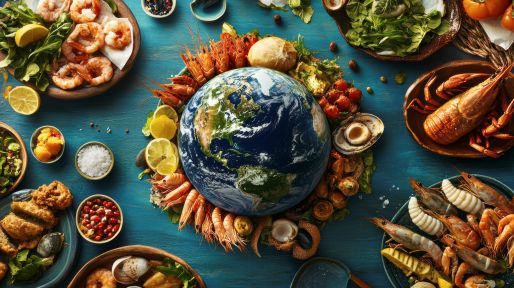719

The War in Ukraine, Climate Change, and Global Market Volatility Have Redrawn Europe’s Food Security Map
The war in Ukraine, climate change, and the volatility of global markets have redrawn the map of food security in Europe. In this context, Romania is emerging as a strategic player, positioned at the crossroads of trade corridors linking the eastern part of the continent with Mediterranean and Asian markets. With significant natural resources and a strong agricultural base, the country has the potential to strengthen its role as a regional guarantor of food stability.
According to the FAO, 2024 marked the third consecutive year of declining global cereal production, while demand for animal protein continued to rise. This pressure on food supply chains is prompting European states to seek regional solutions for securing resources. Owing to its geographic position and production capacity, Romania can become a logistics and processing hub for Southeastern Europe.
A recent World Bank report on food security in the ECA region (Europe and Central Asia) shows that Romania ranks among the five EU member states with the highest potential for growth in agri-food exports, with an estimated annual average increase of +6% through 2030. However, logistical infrastructure and the lack of modern storage facilities remain major challenges.
In 2024, the European Commission launched the “EU Food Resilience” initiative — a program funding investments in local processing, storage, and the digitalization of food supply chains. Romania is eligible for over 250 million euros from this fund, but the absorption rate will depend on coordination between the Ministry of Agriculture and Rural Development (MADR) and regional authorities.
According to Eurostat, Romania provides more than 8% of the European Union’s total wheat production annually, yet exports of processed products remain below 2%. This means that much of the added value is lost abroad. By developing processing industries and integrating logistics through the ports of Constanța and Galați, Romania could shift from being a raw material supplier to a net exporter of finished food products.
Food security is no longer merely an agricultural issue — it is an economic strategy. Romania has the opportunity to turn regional vulnerability into a geopolitical advantage, but only through coordinated action and investment in infrastructure, storage, and digitalization.
(Photo: Freepik)





